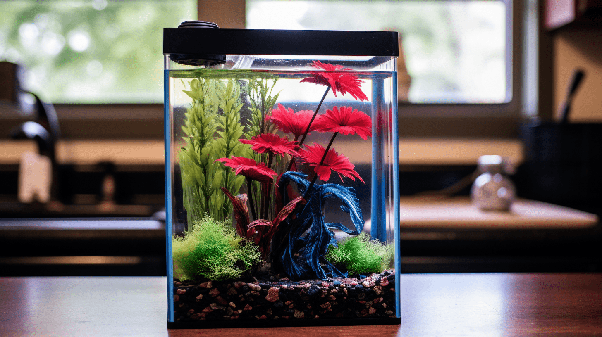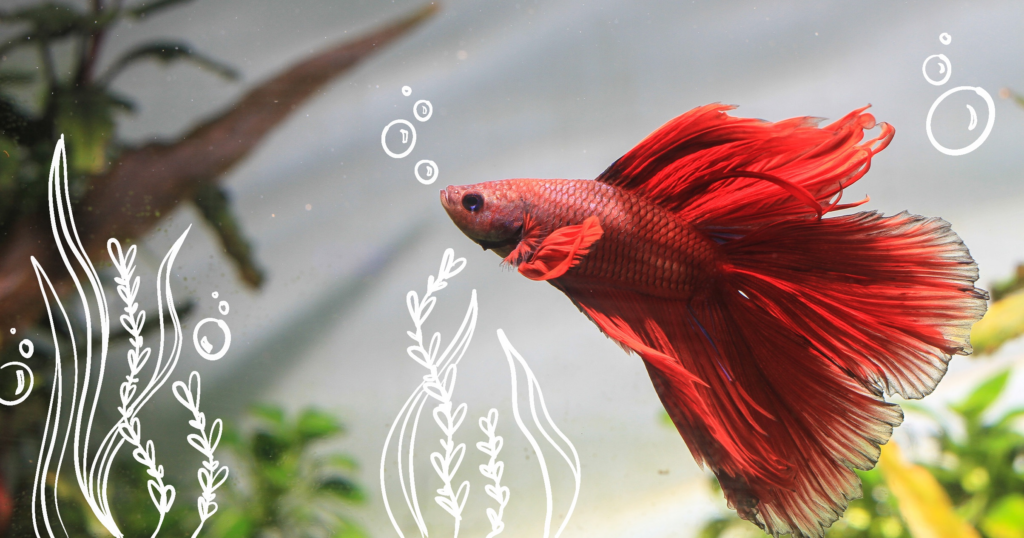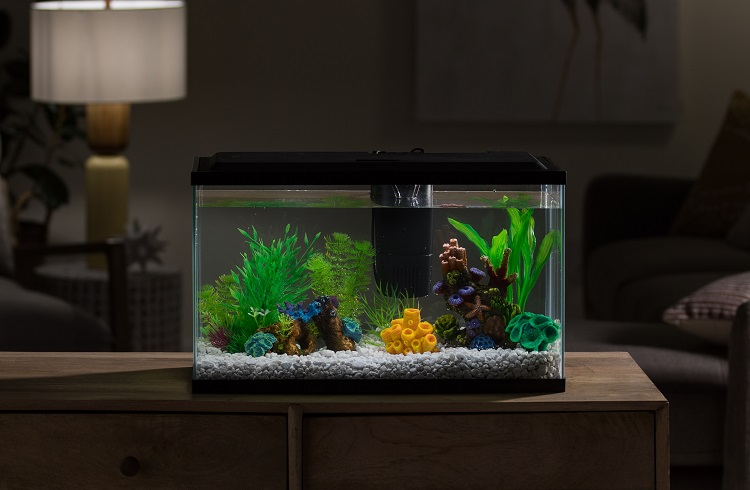When it comes to keeping betta fish as pets, one of the most common misconceptions is that they can thrive in a small 1-gallon tank. However, the reality is quite different. While bettas are known for their resilience and ability to adapt to various environments, keeping them in such a small tank can have detrimental effects on their health and well-being.

Understanding the Needs of Betta Fish
To provide the best care for our betta fish, it is crucial to understand their natural habitat and requirements.
In their native environment, these vibrant and beautiful fish swim freely in large bodies of water, such as rice paddies and shallow streams.
They have ample space to explore and exhibit their natural behaviors.
Maintaining proper water conditions, including filtration and regular water changes, is essential for their overall health.
The Impact of Tank Size on Betta Fish
The size of the tank plays a significant role in the well-being of betta fish.
In a larger tank, bettas have the opportunity to swim and exercise, which promotes their physical and mental health.
They also appreciate having hiding spots and areas to explore, to mimic their natural environment.
On the other hand, confining them to a small 1-gallon tank severely restricts their movement and limits their ability to express natural behaviors.
It can lead to stress, boredom, and even physical health issues. Bettas may become sedentary and inactive, which can impact their overall vitality and lifespan.

Exploring the 1-gallon Tank Option for Betta Fish
While a 1-gallon tank might seem like a convenient and space-saving option, it is important to consider the well-being of the betta fish.
In such a small space, it becomes challenging to meet their requirements adequately. The limited water volume also makes it difficult to maintain stable water parameters, leading to ammonia build-up and poor water quality.
Furthermore, bettas are known to be territorial fish.
In larger tanks, they have the opportunity to establish territories and display their vibrant colors, flaring their fins as a form of communication.
However, in a cramped 1-gallon tank, they may become stressed due to a lack of personal space.
Author’s Note: Check out The Best Betta Fish Tanks: Beginner’s Guide for ideal sized Betta aquariums.
Water Quality and Health in Betta Fish Tanks
Maintaining optimal water quality is essential for keeping Betta fish healthy, especially in small environments like a 1-gallon tank.
Many wonder, “Can a Betta live in a 1-gallon tank?” While it is possible, careful attention to water conditions is crucial.
Regular removal of uneaten food helps prevent water pollution and the growth of harmful bacteria.
Beneficial bacteria are essential in breaking down waste and maintaining a balanced ecosystem.
Regular water changes are vital; draining a portion of the water and replacing it with dechlorinated tap water helps manage ammonia levels and keep the Betta healthy.
By ensuring Betta fish live in stable, clean water conditions, their overall well-being and longevity are greatly enhanced.

Housing Betta fish in a betta bowl or tiny tank requires careful attention to water quality and regular maintenance.
Frequent water changes, gentle filtration, and adding live plants can help create a healthy environment despite the limited space.
With proper care, these small habitats can support a thriving Betta fish.
Potential Challenges of Keeping Betta Fish in a 1-gallon Tank
Keeping betta fish in a 1-gallon tank presents several challenges that can impact their health and vitality.
First and foremost, the limited space increases the risk of ammonia and nitrite spikes, which can be toxic to the fish.
Additionally, maintaining a stable water temperature becomes more difficult, leading to potential temperature fluctuations that can stress the fish.
Furthermore, maintaining consistent filtration and oxygenation becomes challenging in a small tank, which can lead to poor water quality and inadequate oxygen supply.
Without proper filtration, waste build-up can harm the betta’s overall health and immune system.
Creating an Optimal Environment for Betta Fish
Creating a comfortable and healthy environment for Betta fish requires careful consideration of their needs, especially in small tanks or Betta bowls.
A sponge filter is an excellent choice for maintaining water quality without creating strong currents that can stress Betta fish.
Live plants enhance the aesthetic appeal of the tank and provide natural hiding spots while helping maintain oxygen levels.
Author’s Note: Check out What Bettas Like In Their Tank for an in-depth article on creating the optimal environment for Betta fish.
It is crucial to keep the same temperature throughout the tank to prevent stress, as Betta fish are sensitive to fluctuations.
In tiny tanks, regular water changes are necessary to drain water and replace it with clean, dechlorinated water. While Betta fish are typically solitary, if you plan to add other fish, ensure they are compatible to avoid stress and aggression.
By addressing these factors, you can ensure your Betta fish live a healthy and fulfilling life.

Alternatives to a 1-gallon Tank for Betta Fish
Fortunately, there are several alternatives to a 1-gallon tank that can provide a more suitable and enriching environment for betta fish.
A minimum tank size of 5 gallons is generally recommended as it allows for better water quality, temperature stability, and more room for the fish to swim and explore.
Providing live or artificial plants, caves, and hiding spots will also help mimic their natural habitat and reduce stress.
Another option to consider is a betta fish community tank.
While bettas can be territorial, they can coexist with certain tankmates like peaceful shoaling fish or snails.
It is crucial to research compatible species and ensure adequate space and hiding spots for each fish to avoid any conflicts.

Best Practices for Betta Fish Tank Setup and Care
When setting up a suitable tank for betta fish, there are a few best practices to keep in mind.
Firstly, ensure proper filtration and consider a gentle water flow to prevent betta fins from being damaged.
Maintain a consistent water temperature within the recommended range using an adjustable heater.
Regular water testing and partial water changes will help maintain good water quality. Aim for a balanced diet, including high-quality betta pellets and occasional live or frozen foods.
Lastly, observe your betta fish regularly for any signs of stress, disease, or abnormal behavior, and seek appropriate veterinary care if needed.
Conclusion
While it may be tempting to keep betta fish in a convenient and small 1-gallon tank, it is not an ideal choice for their well-being.
These beautiful creatures thrive in larger tanks that provide ample swimming space, hiding spots, and stable water conditions.
Considering alternatives such as a 5-gallon tank or a betta fish community tank can ensure a happier and healthier life for these remarkable fish.


